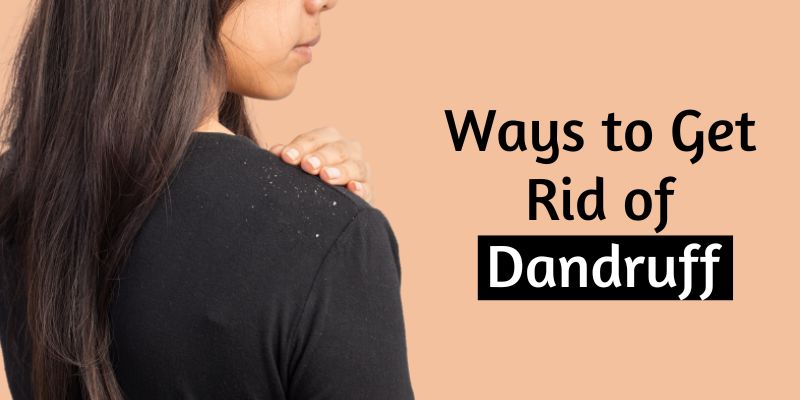
Dandruff, a form of scalp fungal infection, is one of the most common hair problems, which affects almost 90% of individuals. Several factors can trigger this issue further like pollution, dirt, dust, unhealthy lifestyle, improper cleaning, cosmetic products, and more.
The hair care industry is not the one to fall far behind compared to the massive skincare industry, and hence various products are launched to combat this issue. However, are most of them even useful? Let’s find out.
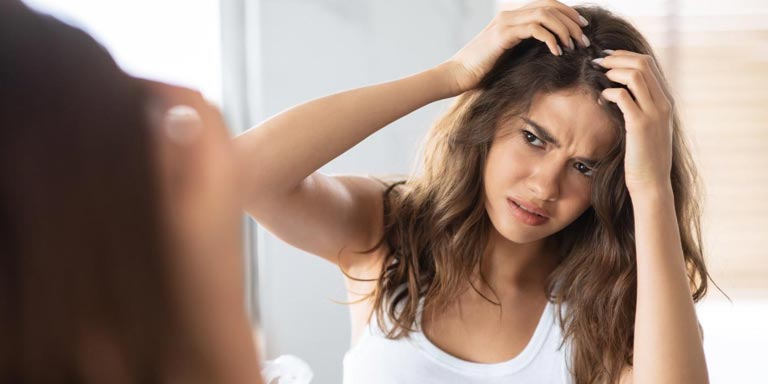
Dandruff is a non-contagious skin condition that affects your scalp, making it dry. The responsible fungus Malassezia swallows the oil in your scalp causing white flakes upon itching. One does not consider dandruff a serious condition but rather embarrassing.
Stress, excessive caffeine consumption, usage of harmful chemicals like bleach, and other factors can damage the hair follicles while making them prone to dandruff. The new anti-dandruff products often fail to justify their claims and dandruff returns.
Another huge contributing factor to dandruff might be your obsession with hair products like gels, wax, straighteners, etc. While the process of dandruff removal might be a little tricky, it isn’t unachievable. Following a healthy pattern like on-time scalp cleaning and oiling can help achieve healthy hair. Now is the time to dive into the details on “how to deal with dandruff?”
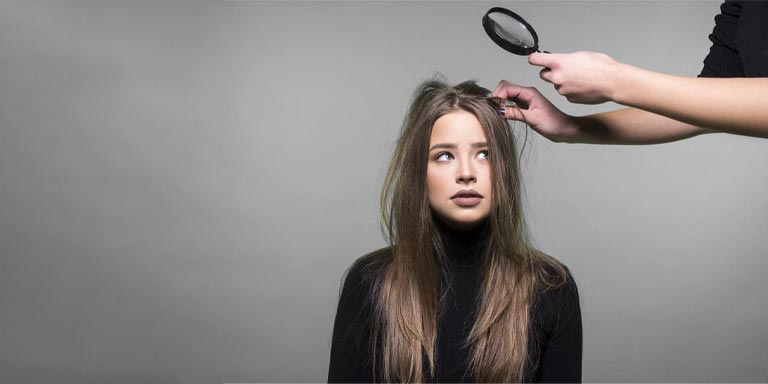
While there can be several factors causing dandruff, today we will be discussing some major ones that can happen to anyone.
Let’s have a look at some causes:
Psoriasis or Eczema, an itching condition with redness and swelling on different levels, make people more prone to dandruff than others. If you have either of the mentioned conditions, you are more likely to have dandruff with seasonal triggers.
Unhygienic living conditions like using unwashed daily sanitary items (towels, pillow covers, bedsheets, hair combs, etc.) can cause dandruff.
No water retention, moisture, or nourishment multiplies the chances of dandruff on your scalp. It is essential to use gentle products that wouldn’t feed on your scalp oil.
Overwashing your hair, again a cause of dandruff releases excess sebum, which results in an oily scalp. It is advisable to use specially-made shampoos and conditioners to fix your greasy scalp.
Some people are extra sensitive to hair and skincare products. In such cases, read the label of every product very carefully before purchasing to avoid dandruff.
Have you ever found a downpour of white flakes on your scalp while scratching? Dandruff is a global crux of hair problems, dealing with which can become tiring and annoying.
The problem might become manageable if you identify the symptoms of dandruff in the early stages and work on its remedies.
Let’s discuss some common symptoms of dandruff-
Itching, one of the earliest symptoms, makes you want to scrape your scalp more often. Over-itching leads to damaged hair follicles, which causes dandruff.
Instead of scratching or scraping, one should use aloe vera gel, which helps fix the dry scalp and stop your sudden urge to scratch.
Dandruff blocks your hair follicles, so your scalp stops absorbing the nutrients, causing your hair to break early. It drastically decreases your hair density, making it look thin or volume-less.
It is advisable to use mild anti-dandruff shampoos to wash out the excess sebum and reverse the effect of hair fall.
Excess oil production leads to a greasy scalp. Several factors like- age, skin type, environment, etc., can be a root cause of oily and greasy scalp. An on-time hair care routing may prevent the issue from growing.
Dandruff causes your scalp to produce a foul odor, which becomes embarrassing to deal with, be it in public or private. While it is the parent issue, a fungal infection might be the triggering cause.
It is advisable to use tea tree oil, an anti-fungal and anti-bacterial product, which helps fix the issue after a few regular uses.
Split-ends are a sign of unhealthy and weak hair. Leaving dandruff untreated for too long can cause your hair ends to divide. However, treating the issue in the early stage might restore the health of your hair.
Acne on the hairline and in the middle of the eyebrows can be another symptom of dandruff. This is due to the clogged hair pores that the nutrients don’t go inside. Using non-comedogenic products can resolve this issue.
Flakes on the hairline, eyebrows, behind the ears, neck, and nose are a symptom of same. Contrary to popular belief, it can form anywhere, not only on your scalp. If you observe flaking in the mentioned areas, then it might be eczema-triggered dandruff. Visit a dermatologist at the earliest to prevent it from spreading further.
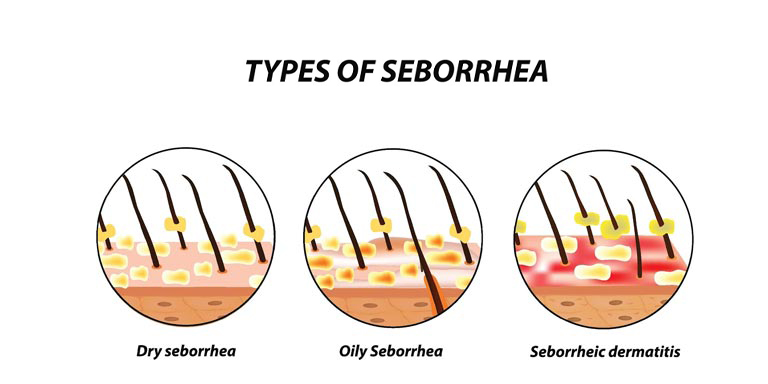
Different types of dandruff are formed under various circumstances. Let’s have a look at some of them.
Dry skin dandruff occurs due to the lack of skin moisture or simply dry skin. When the scalp loses its natural oils, it forms white flakes on the scalp. One should use mild cleansers to remove the dryness and prevent nutrients from losing.
Greasy dandruff is a yellowish substance caused by excess sebum production on the scalp that emits a foul odor. It clogs the hair follicles resulting in acne, pimples, and pus.
Visiting a dermatologist and following a time-tabled medication may help control the growth of this issue.
When the fungus grows on your scalp, it triggers the growth of dandruff. Pollution and dirt also increase the problem for extra sensitive people and make them prone to having dandruff.
This is what essentially causes the flaking of the scalp. It cannot be cured with over-the-counter products and hence the best is to consult a professional.
Below are some of the home-based remedies to treat dandruff-
Apple cider vinegar is an excellent solution to cure dandruff from its core. All you need is to mix apple cider vinegar with four cups of water and wash your hair with it. It will prevent a flaky scalp after a few washes.
Baking soda is another solution in case of dandruff prevention. Being a great exfoliator, baking soda eases the itching and balances the PH level of the scalp.
Make a thick paste by mixing one teaspoon of baking soda with some water, apply it on your scalp, massage it, and after a while, wash it off with the help of lukewarm water.
Olive oil is a great remedy to cure dandruff, specially for people sensitive to strong odors. This multi-purpose oil is light-weighted and has a mild odor. Olive oil prevents your scalp from getting dried, resulting in dandruff reduction.
Mouthwash, specially Listerine, is a great and effective option to remove stubborn dandruff. It removes itching and stops it from coming back.
Mix it in the water and wash your hair with it. It will not only work on dandruff removal but also provide you a cooling after-effect.
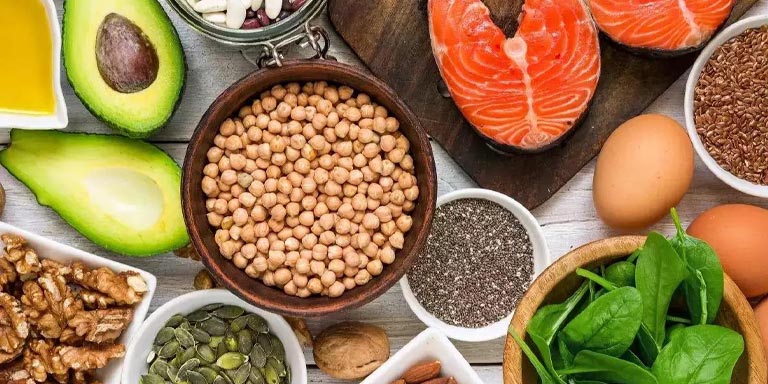
Home remedies are easy on the pockets, quick, and convenient to use. More than often they are also found in staple kitchen ingredients.
If you are someone who loves experimenting with little DIYs in the kitchen, then you will probably love these little tips-
Lemon Juice is one of the most popular components when it comes to removing dandruff. Their astringent property, when combined with shampoo, removes even the most stubborn dandruff effectively.
Mix one part of shampoo with 2-3 tablespoons of dandruff and mix it well. Apply it to wet hair and lather on nicely on the hair while gently scrubbing on the scalp. Wash it off and apply a regular conditioner to finish the process.
Coconut Oil is also a great way to add some moisture back to the scalp. The loss of natural oils from harsh chemicals (bleaches, hair dyes, etc.) and hot hair tools can often cause flaking which is a major cause of dandruff. Massaging lukewarm coconut oil on the scalp before shampooing can also curb dandruff formation.
Tea tree oil has antibacterial and antifungal properties which are a major game-changer when it comes to removing dandruff. They stop the fungus formation on the scalp which further helps in eradicating dandruff. Mixing it in with your regular shampoo/hair oil will do the job effectively.
Aspirin tablets contain salicylic acid which is a great way to remove dandruff. Crush an aspirin tablet and mix it in with a little bit of water and lemon juice. Pour the mixture into a bowl of shampoo. Stir well and apply to the scalp. Rinse off with cold water and reap the benefits of dandruff-free hair.
Omega 3 acids in your diet like fish oil and skin can help in healing scaling and dryness. Its deficiency is sometimes the major cause of dry hair, scalp, and skin. It also promotes nourishment and brings back the balance of natural oils to the scalp. The inclusion of omega-3 acids in your diet can help in combating dandruff.
Eating a clean and fresh diet with plenty of green, leafy fruits and vegetables will lead to healthy hair and scalp. Minimizing stress, and leading a clean lifestyle are some key factors in getting rid of dandruff.
Fresh Aloe Vera is easy and convenient to find. It also serves as a great natural remedy to deal with dandruff. As compared to the stored gels from the containers, use fresh aloe vera to get instant results. Break open an aloe leaf and scoop out the gel. Rub it gently on the scalp and leave it on for around 15-20 minutes. Wash it off with regular-temperature water to get instant relief from scratching and itchiness.
Dandruff, as pesky as it sounds, might require some time, effort, and energy to go away. Even after making consistent efforts, it might not completely dissolve via home remedies and other over-the-counter shampoos.
A doctor may run some tests in rare cases like people with diabetes are more prone to dandruff due to the unbalances in the system. Let’s discuss some medical treatments for dandruff offered by doctors across the globe-
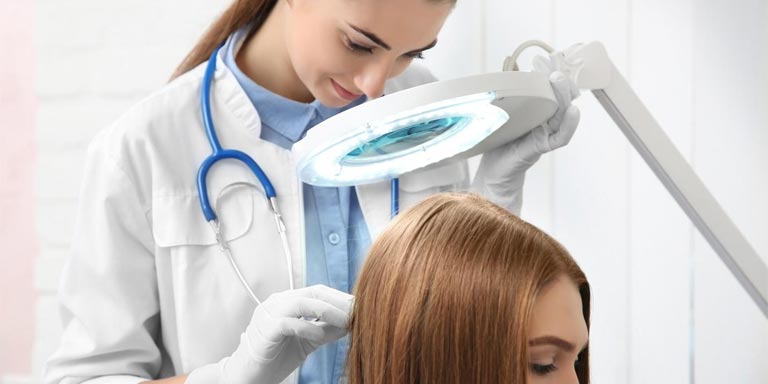
Dandruff is not just limited to flaking and white scales but also points to an underlying triggering condition, Psoriasis, an itchy skin disease with a flaky scalp.
The doctors examine the scalp, and if traces of psoriasis are found, the patient is medicated accordingly.
A healthy scalp routine is often suggested by doctors as a part of dandruff treatment. This helps heal the scalp and unidentified medical conditions that lead to dandruff or dry scalp.
Stress is the root cause of several unwanted problems. If you leave your stress untreated for too long, it makes your scalp prone to dandruff. So, doctors check stress levels to treat the condition better.
Thorough brushing is one of the most effective remedies that does not let dandruff sit on your scalp. Your doctors may recommend this before using any medicated shampoos or conditioners to see faster and more effective results.
Certain conditions can also cause dandruff in individuals. Some of them are – epilepsy, alcohol addiction, depression, eating disorders, stroke or heart attacks, a weak immune system, fatigue, obesity, etc. Doctors prescribe medicines according to the underlying condition.
A timely routine and proper care can solve this persistent issue. Clinical treatments to treat issues like eczema, ringworm, yeast, and contact dermatitis are also some of the reasons why a long-time dandruff issue refuses to go away, even after using various products.
Try and go for routine checkups with a medical professional to resolve this issue once and for all in the long haul. This will also lessen the chances of getting a dandruff outbreak all over again.
Famous personalities use heavily advertised anti-dandruff shampoos and conditioners. They usually have anti-fungal and anti-bacterial properties, which stop fungi formation on the scalp.
Although these shampoos are assumed to cause dry and brittle hair, the myth has been busted by many. So, let’s discuss some shampoos that are useful in treating dandruff.
These contain antibacterial, antifungal agents, and zinc pyrithione which are extremely beneficial for combating dandruff.
Tar-based shampoos show how quickly your scalp begins to flake, especially in the sun. People who have light/bleached hair should refrain from using this kind of shampoo.
These products help to eliminate scaling and reduce the redness of the scalp.
These contain an antifungal agent which as should be used as directed. Rinse thoroughly after shampooing, as they tend to discolor the hair.
This shampoo is formulated to kill the dandruff-causing fungi which live and multiply on your scalp.
These products contain a type of corticosteroid which helps in controlling itching, flaking, and irritation.
Concludingly, dandruff is a lifelong condition, and its tiring removal is not guaranteed. However, if you provide proper care and nourishment to your scalp, there are chances of no dry scalp or dandruff. You can cure it via home remedies, or if the situation worsens, you can seek professional help.